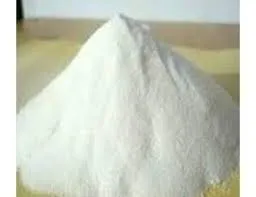
අගෝ. . 01, 2024 02:51 Back to list
Enhancing Adhesion in Construction with Innovative Mortar Bonding Agents for Superior Performance
The Role of Mortar Bonding Agents in Construction
In the world of construction and masonry, the integrity and durability of structures are paramount. Among the various materials used in this field, mortar plays a critical role, serving as the binding agent that holds bricks, stones, and blocks together. However, to enhance the effectiveness of mortar, especially in challenging environments, the use of mortar bonding agents has become increasingly prevalent. This article will explore what mortar bonding agents are, their benefits, and their applications in construction.
What is a Mortar Bonding Agent?
A mortar bonding agent is a specialized chemical additive that is mixed with the mortar to improve its adhesion properties. These agents are designed to promote better bonding between the mortar and the surfaces it adheres to. Mortar bonding agents can be recognized in various forms, including liquid additives, powders, and emulsions. They are often composed of polymers or latexes that enhance the physical properties of the mortar, making it more robust against environmental challenges.
Benefits of Mortar Bonding Agents
1. Enhanced Adhesion The primary benefit of using a bonding agent is its ability to improve adhesion. This is particularly crucial when working on surfaces that are not ideal for standard mortar, such as glazed tiles, smooth concrete, or previously painted surfaces. The bonding agent creates a stronger bond, reducing the likelihood of cracking, peeling, or delamination.
2. Increased Flexibility Mortar bonding agents contribute to the flexibility of the mortar mix. This is especially beneficial in areas subject to movement or thermal expansion and contraction. By allowing for slight movement without compromising the bond, these agents help to prevent structural failure.
3. Improved Water Resistance Many bonding agents enhance the water resistance of mortar, making it suitable for exterior applications or areas exposed to moisture, such as kitchens and bathrooms. This property helps reduce the risk of water infiltration, thereby extending the lifespan of the masonry.
mortar bonding agent

4. Faster Setting Times Some bonding agents can accelerate the setting time of mortar. This is advantageous in projects that require quick completion or in colder weather conditions where traditional mortar takes longer to set.
5. Versatility Mortar bonding agents can be used in various applications, ranging from residential to commercial projects. They are effective for both new construction and repair work, allowing for greater flexibility in design and application.
Applications in Construction
Mortar bonding agents find use in numerous applications across the construction industry. They are commonly employed in tile installation, where a strong bond is necessary to prevent tiles from loosening over time. Additionally, these agents are routinely used in restoring and repairing masonry structures, where adherence to existing surfaces is crucial for durability.
Moreover, bonding agents are instrumental in overlay applications, where new mortar is applied over existing surfaces. This is particularly useful in renovations, as it allows for the rejuvenation of old structures without the need for complete demolition.
In recent years, the trend towards sustainable construction practices has also influenced the use of mortar bonding agents. By improving the longevity and performance of structures, these agents help reduce waste and resource consumption over time.
Conclusion
In summary, mortar bonding agents play an essential role in modern construction, enhancing the performance and durability of mortar. By improving adhesion, flexibility, and water resistance, these agents help ensure that masonry structures remain strong and reliable over time. As the construction industry continues to evolve, the importance of high-quality bonding agents will only increase, paving the way for more resilient and sustainable building practices. The investment in mortar bonding agents is an investment in the future of construction, making them a key consideration for any project.
-
Versatile Hpmc Uses in Different Industries
NewsJun.19,2025
-
Redispersible Powder's Role in Enhancing Durability of Construction Products
NewsJun.19,2025
-
Hydroxyethyl Cellulose Applications Driving Green Industrial Processes
NewsJun.19,2025
-
Exploring Different Redispersible Polymer Powder
NewsJun.19,2025
-
Choosing the Right Mortar Bonding Agent
NewsJun.19,2025
-
Applications and Significance of China Hpmc in Modern Industries
NewsJun.19,2025







